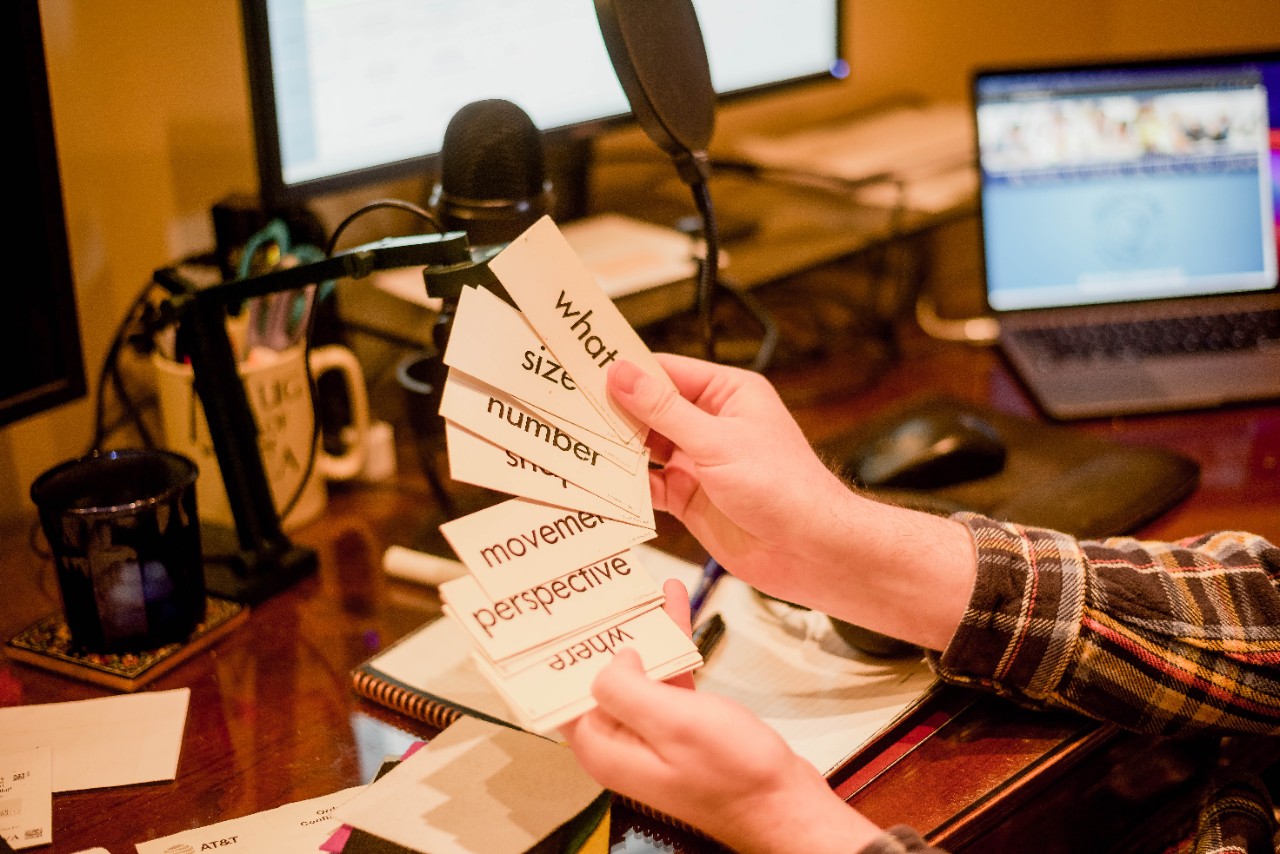Juli and Ben





It was by raising her sons with Autism, that Juli Liske came to understand herself more and learned to advocate for her own needs better. While raising three children in a rural area with limited resources, she did everything she could to make sure they had all the tools they needed to succeed. It was challenging and eye-opening.
“Where we lived, they weren't really diagnosing autism, especially kids who were verbal and Dylan was verbal,“ Juli said, “Then when Ben came along, who was nonverbal, and in working with him, particularly, I began realizing some things about myself and just detecting gaps in my own development or ability to teach him. I mean, I was non-verbal until I was four and the youngest of six. No one thought much about it.”
Juli knew she wasn’t alone, that there were likely many other families like hers who needed support in navigating resources and community. In an effort to help those families, she wrote a book called In the Eye of the Hurricane, Finding Peace in the Storm of Autism. From there, she created the Brown Center for Autism in 2008, an early intervention organization that wrapped around services, including counseling, for families in Tennessee. While working with those families and reflecting on her son’s progress and her own life experiences, Juli had doctors confirm what she suspected: she has autism too.
“It was really life-changing. It opened up, you know, not just understanding my children better, but having a little more grace, and patience for myself,” She added. “Being more comfortable with being vocal about what I am and am not comfortable with or asking questions. Also just being able to laugh at myself and accept who I am.”
Ben, her youngest son of whom her book is centered on, wasn’t surprised by his mom’s diagnosis. It’s what he believed drew them closer together through the years and he’s grateful for that connection. “I’ve always been uniquely close to her indubitably because she had a better understanding of my brain than I could say for anyone else I grew up with. Her discovery of her own autism solidified the reasons why,” Ben explained.
Ben is now 21-years-old. He’s a teacher and tutor, and he considers himself a life-long learner. He was just recently accepted into a doctoral program at a university in Georgia. He’s also always had a passion for creating and enjoying music. Ben spends a lot of his spare time listening, performing on the piano, singing, and playing the drums.
“[Music] is certainly an integral part of me and my personal experience with autism,” Ben said. “The way I can mentally approach learning creates in itself an inherent reward system that makes it desirable—a frankly uncanny ability to quickly determine patterns in abstract and concrete data guides me. I like to carry this forward in my teaching by helping my students understand patterns.”
His mom says he’s defied all expectations that were laid out before their family when he young. Doctors told Juli that Ben would never being able to speak, among other challenges. She says they now encourage others to never set limitations for anyone based on a diagnosis.
“Every child has a strength and sometimes it's finding those strengths that help them overcome other areas. Ben is so talented and so knowledgeable about so many things. I think he gives hope to a lot of young people on the spectrum who are coming up behind him. I couldn't be more proud,” Juli said.
Now that Ben and his siblings are adults, Juli has found new ways to use her experiences to support Tennesseans with autism at her job as a dental hygienist. The Brown Center for Autism was closed in 2017, when Juli was diagnosed and received treatment for breast cancer. Dental hygiene was a job that Juli was familiar with, having held the job previously, and the need for experienced hygienists spiked during the pandemic. An unexpected but important part of the work became helping autistic patients feel more comfortable in the dental chair. “I know better how to communicate with them or with their caregivers on what they would need to be successful in the appointments. Some of them have self-disclosed and then told me they felt like they couldn't go to college or couldn't have a career and being able to help them, it's just a really good feeling,” said Juli.
In addition, Juli is a board member for the National Autism Spark Research Study and self-advocate member of the governor-appointed Tennessee Council on Autism Spectrum Disorder. She sits as chair for the council’s Aging and Adulthood committee. These appointments allow her to be a part of making change and progress statewide and nationally that will improve independent living, employment, and community accessibility for people with Autism.
The state’s council worked with DIDD to create the #IAmASDinTN campaign to celebrate Autism this April, also known as Autism Month. We asked Ben and Juli to share a message or information for both people with and without people with Autism. Ben responded with a hint of humor, “To those without ASD, bless your heart. Even when disability isn’t visible, it isn’t invisible. Addressing it is not the same as demeaning it. To those with ASD, if you do not already do so I would encourage you to socialize with others on the spectrum and at least once have the experience of being in a room where the majority of its occupants are also on the spectrum.”
Juli concluded, “There's no better employee than people on the spectrum for a lot of jobs. They're seriously to be celebrated, I mean, some of the most brilliant things that have occurred in all of humanity, you know, the development in today's world have come from people who are on the spectrum. It has to be a way of life and a way of wrap-around-thinking in order for folks with Autism to fulfill their greatest potential.”